
Top 20 Kubernetes Courses

When it comes to handling containerized applications from deployment to management, Kubernetes is the best open-source system. Besides, the widely available tools and services for Kubernetes out there has made it really popular among developers. It helps to enable any number of hosts to manage cloud-native applications across on-premise infrastructures and cloud environments like AWS, Google Cloud Platform (GCP), or Microsoft Azure. Besides, Kubernetes is free, and many organizations have started using Kubernetes for managing applications. Enroll in Kubernetes courses as it is already high time to earn a certification if you plan to start your career in this field as a Kubernetes specialist.
Best Kubernetes Courses
A certificate can validate your skills to increase the chance of getting into this fast-paced industry of microservices and cloud-native applications. The below-mentioned Kubernetes courses can help to kick start your career and gain in-depth understanding as well.
1. Google Kubernetes Certification
This course targets newcomers, especially those who have an interest in this field. If you are familiar with common line tools, Linux environment, and web server technologies like Nginx, you can be a part of this one of the uniquely designed Kubernetes courses. It is available on Coursera, and anyone can enroll for free.
Insights of this course
- This Kubernetes Training focuses on the fundamentals of the Kubernetes engine alongside advanced topics like monitoring and containerizing applications as well.
- How we can deliver a continuous pipeline using Jenkins will be taught, and the students will experience the command line interface for completing operations in Kubernetes.
- You will get to learn working with Docker containers to be able to deploy in Kubernetes clusters and release new updates of the existing applications.
- Covers the core parts of the Kubernetes platform, like management and operations of applications across the cluster of hosts.
- Scaling, which indicates handling the workload when the number of traffic reaches the peak, will also be highlighted throughout the course.
- It can help you to dive into more challenging topics like AI & ML, while developers, cloud solutions architects, DevOps engineers, and IT managers can take this course.
2. Docker and Kubernetes: The Complete Guide
This Kubernetes training can be seen as a boost to move into the most advanced topics like deploying any sort of web application and using CLI commands. A solid foundation over the basic skills and knowledge is before succeeding in any field, and this course serves everything one needs to know about the Kubernetes engine.

Insights of this course
- Focuses on deploying web applications, although all the core features alongside hands-on training will be provided throughout the course.
- Become experienced inspecting and debugging the running containers while 268 Lectures, 17 Articles, and 3 Downloadable resources are included.
- After gaining an in-depth understanding, you will move forward to build CI + CD pipeline using platforms like Github, Travis CI, and AWS.
- It highlights the key factors, tips, and tricks to use the various features to make the system more efficient and reduce the cost.
- You will get an opportunity to build a complex multi-container app and deploy it to AWS, although this course does not ask for any prior experience in docker or Kubernetes.
- Deploy your codes automatically after pushing in into GitHub. Besides, how we can deploy a production-ready Kubernetes cluster to Google Cloud will be covered.
3. Docker Mastery: with Kubernetes + Swarm
This is one of the best-sellers among the Kubernetes Courses in Udemy, which covers every aspect you need to build, test, and deploy containers. The course contents are regularly updated, and it comes with unique features like slack chat and weekly live Q&A with the instructor. Besides, you will get a certificate to validate your skills upon completing the course.
Insights of this course
- Learn to serve your application in a container and test and edit code in real-time alongside handling private networks exposed only to specific ports.
- All the leading server cluster tools will be covered while students will learn to install the Kubernetes engine and design three-node swam clusters in the cloud.
- How we can use Virtual IP’s for load balancing of a cluster will be highlighted, and also the optimization process of docker files will be portrayed.
- At the end of the course, you will be able to build and deploy your custom application images and create your own image registry.
- Highlights the difference between Kubernetes and Swarm while the Swarm techniques will be covered to enable you to encrypt environment configurations.
- You will be able to run apps in Docker, Swarm, and Kubernetes and look into the security part like protecting keys, TLS certificates, and encryption secrets as well.
4. Learn DevOps: The Complete Kubernetes Course
This course brings light on both the theoretical and hands-on practice to better understand the Kubernetes engine and its applications. The course does not ask for any requirement, although any prior experience in using Docker, AWS, or Linux will certainly help you to be on the right track from the beginning.
Insights of this course
- This Kubernetes training starts with installing and configuring the Kubernetes software and advances with building stateless or stateful applications.
- You will learn to deploy Cassandra clusters and get to know how we can use volumes to make the containers persistent in Kubernetes.
- Students will build a custom helm chart to portray a set of relatable resources that help deploy web apps stack, databases, and caches.
- Istio is an open-source platform that helps control the data sharing between microservices, and you will be taught to install and use Istio.
- Alongside the fundamentals, this course focuses on the most sophisticated topics like Healthchecks, Secrets, ConfigMaps, placement strategies, and so on.
- Real-life applications like WordPress and MySQL are covered to understand better and enable you to deploy cluster on-premise or the cloud.
5. Kubernetes from A to Z
This is one of the best Kubernetes courses available in Udemy and has already been reviewed by more than five hundred students. While Stefan Thorpe, Samy Mkacher design this course, it is completely dedicated to the beginners. If you want to jump into the rapidly growing Kubernetes industry, you should look into this certification course.
Insights of this course
- It highlights the importance of the best open-source platform available right now and makes you ready for the exciting opportunities to grow your career.
- You can expect to learn all the basic and most important components of the Kubernetes engine while it comes with the downloadable resources as well.
- This course covers the fundamentals and provides an opportunity to gain an in-depth understanding of cluster architectures and containers.
- Focuses on the newcomers, so each section is accompanied by proper examples and references of real-life implications to clear doubts.
- The well-designed curriculum is one of the main reasons behind its popularity, while a certification will be provided to authenticate your expertise.
- Course contents are straight forward and easy to follow. You can enroll in this course anytime, and takes twenty-six lectures to complete.
6. Kubernetes Hands-On Deploy Microservices
This Kubernetes Training is intended to enable you to deploy microservice architectures using Kubernetes. You will be able to build, deploy, manage, and monitor live services in the Kubernetes cluster. Even if you are totally new to this hot topic of computer science, you can look into this course to get going.

Insights of this course
- The course is designed to represent things easily while you will get adequate knowledge to handle the essential tools efficiently.
- You can expect the instructor’s latest techniques and best practices throughout the course, which will surely clear your doubts and confusion.
- How we can integrate Kubernetes with a Continuous Deployment System will be discussed, and you will understand the StatefulSets of Kubernetes as well.
- Learn to restrict access to a cluster using RBAC and start using ElasticStack, Kibana, and ElasticSearch to analyze the system-wide logs.
- It will guide you to make you able to use the Kops management tool to run Kubernetes on the popular could services platform AWS.
- If you have any previous knowledge of the Docker and AWS platform, it will surely make your path easier to complete the course and earn certification successfully.
7. Certified Kubernetes Administrator
This is one of the best Kubernetes courses available out there that is intended to prepare you for the Kubernetes Administrators Certification exam. It is already reviewed by 11,016 people, while 47,708 students have already enrolled for the course, making the training trustworthy and reliable. It comes with a Money-Back Guarantee as well.
Insights of this course
- Although this course starts with the basic understanding of Docker Container and YAML, it will help create Kubernetes pods, services, and deployments.
- It is not suitable for beginners as it covers some of the most advanced topics. At the end of the course, you will be able to administer a Kubernetes cluster.
- It comes with a lot of practice to make you confident to sit for the exam, and it shows how we can build a Kubernetes Cluster from scratch.
- As an administrator, you will need to troubleshoot the system very often, and it tries to enable you to monitor and fix bugs within the running application.
- Learn to configure storage in a Kubernetes cluster alongside testing, and debugging a Kubernetes Cluster end-to-end will also be covered.
- 108 articles and 13 downloadable resources are included in the course. The security part and integration of networks in the Kubernetes cluster will be discussed as well.
8. Kubernetes for the Absolute Beginners
You can probably guess the target people from the name of this Kubernetes training. It is designed by Mumshad Mannambeth and distributed in sixty lectures. It starts with the basics and advances to prepare you for diving into more challenging and complex stuff. In other words, It is intended to make you interested in developing your career in this field.
Insights of this course
- The course is designed to present things in a simple and easy-to-go manner to make you understand all the important fundamentals really well.
- There is no need to have any prior knowledge of Kubernetes or Docker Containers, while basic system administration will be required.
- You will learn to deploy Kubernetes clusters on the local environment or systems alongside the deployment of web applications on the Kubernetes engine.
- Learn to code with YAML language, which is important to create the Kubernetes resources. It comes with 37 coding exercises as well.
- While you will learn to deploy Kubernetes on cloud platforms like Google Cloud, how we can deploy ReplicaSets, Services and Deployments will be covered also.
- 5.5 hours of on-demand video and 23 articles are included with the course, and you will earn a certification upon successful completion of the course.
9. Kubernetes Mastery: Hands-On Lessons
As one of the highest-rated Kubernetes courses in Udemy has already helped many people get their desired job after completing the course. It is designed by a docker captain named Bret Fisher, who regularly updates the course contents and provides accurate information to the learners.
Insights of this course
- Even if you have previous experience in Cloud Computing and platforms like AWS, you will find this course interesting for useful, precise, and proper explanations.
- Not suitable for absolute beginners as the basic understanding of web and database servers, command prompt, SSH, and package managers is required.
- Learn to use args, envs, and ConfigMaps according to the system configuration requirement alongside Kubernetes and cluster tools.
- Get an opportunity to make you able to build custom YAML manifests and enable it to use infrastructure-as-code methods.
- While advanced topics like rolling updates, health checks, and failure recovery will be covered, it highlights the latest Kubernetes tricks as well.
- Best practices for maintaining DevOps workflows properly will be taught, and it comes with a ton of assignments and on-demand videos.
10. Kubernetes with Docker on Google Cloud, AWS & Azure
This course is different from all the courses that have already been mentioned in this list. This Kubernetes training focuses on using Kubernetes and Docker on platforms like Google Cloud GKE, AWS EKS, and Azure AKS. Besides, it enables students to deploy microservices using Spring Boot and Java.
Insights of this course
- Intended to deliver a simplified process so that you can develop software using Docker and Kubernetes, especially for java spring boot applications.
- Important concepts like Images, Repository, Containers, Pods, Replica Sets, and Deployments will be covered throughout the course.
- Gain an in-depth understanding of the Docker and Kubernetes mechanism and learn to integrate Kubernetes with Services and Ingress.
- Microservices deployment in Kubernetes like Service Discovery, Centralized Configuration, Distributed Tracing, and Load Balancing will be highlighted.
- Become a master in Kubernetes, and Docker Commands alongside YAML configuration and configuration of Maps, Secrets, and Kubernetes CLT – kubectl.
- Besides, integration of Kiali, Graphana, and Prometheus with Istio and Kubernetes and HELM usage to automate microservices will also be discussed.
11. Fundamentals of Kubernetes Deployment
This course is really great for the people who want to better understand the Kubernetes engine before looking for a job or advancing their career in this industry. It focuses on going as detailed as possible to clear all the doubts and make students apply in real-world scenarios.
Insights of this course
- Although this course tries to explain every aspect of the Kubernetes engine, its Architecture, creation of clusters, and installation configurations are emphasized.
- You will get an opportunity to explore how to deploy applications in Kubernetes and how we can scale, manage, and roll back deployments as well.
- It starts with all the fundamentals you need to get going and become familiar with the engine, and then clusters, pods, and nodes are discussed eventually.
- In the later lectures, this Kubernetes training talks about Persistent Volumes, Kubernetes Authorization, and Authentication to control the access.
- This course ends with a demo designed to show how all the tools and features function together in the Kubernetes engine to produce the desired outcome.
- The course contents are 100% online, and the deadlines are flexible as well. It also comes with a lot of practical exercises.
12. Learn DevOps: On-Prem or Cloud Agnostic Kubernetes
This course is for the expert people who are already working in this field and have a solid understanding as well. This can be referred to as one of the most exciting Kubernetes Courses available out there. You will learn to build a cluster within your enterprise and in the cloud as well.
Insights of this course
- Learn to use kubeadm to deploy Kubernetes clusters while operators and managing storage with Rook will also be covered.
- Service mesh will be introduced that you can manage with Istio and Envoy. Besides, the authentication process by LDAP or Github will be discussed.
- You will learn Calico that you can use to design advanced networking protocols or achieve additional features alongside the management of Kubernetes secrets.
- Unlike other courses in this list, this course highlights the Platform as a Service and enables you to use it with Kubernetes using Openshift Origin.
- Get to know how you can set up containers in the Kubernetes Engine with encrypt signed TLS certificates, and it also offers a demo on cert-manager.
- This Bootcamp course comes with hands-on examples so that you can make a cloud framework and usage of integrations with various tools to run in Kubernetes.
13. Amazon EKS Starter: Docker on AWS EKS with Kubernetes
This course is intended for the people who are trying to enhance their knowledge and expertise in this field. It will enable you to deploy Docker Containers on Kubernetes and on the Cloud Computing Platforms like AWS EKS & Fargate. You should be familiar with Linux & shell before enrolling in this course.
Insights of this course
- It is one of the top-rated intermediate level Kubernetes courses available in Udemy that comes with a certificate upon successful completion.
- Students will get to learn the deployment techniques of EKS clusters using CloudFormation and integrate kubectl to control the access to the cluster.
- Besides, it is designed to show how we can deploy stateless applications on EKS and use public Elastic Load Balancer properly to expose the app.
- Scaling of Kubernetes clusters alongside the usage of Fargate on EKS clusters will be discussed throughout this certification course.
- After deploying on EKS, an application needs to bind with the EBS volumes, and this course covers these topics as well.
- Knowledge of the topics like PI Server, Kubelet, Master & Worker Node and VPC, Subnets, IAM, EC2, EBS, Security from AWS will be required to pass the course.
14. Certified Kubernetes Application Developer
This Kubernetes training can be referred to as the best companion that can help you to pass the Certified Kubernetes application developer certification exam. If you have a solid understanding of Docker, you are ready to enroll in this course. The course contents are amazing and presented simply.
Insights of this course
- This course is designed by Zeal Vora, who is a renowned instructor in Udemy and shares his cloud computing skill and professional experience throughout the course.
- It is designed to help students pass the certification exam and focus on the fundamentals strongly.
- Emphasizes the clear understanding of each topic so that people who are new to this do not get it hard to get going with the course.
- Comes with a lot of sample problems and examples as well. Even it has separate sections for the exam as well that include practicals and videos.
- Necessary topics like Labels and Selectors, ReplicaSets, Deployments, Rolling Back, Configuration, CronJobs, Manifest via CLI, and pointers will be covered.
- Overview of the batch jobs will be discussed before advancing to creating the first job in the Kubernetes engine.
15. Canary Deployments To Kubernetes Using Istio and Friends
Canary deployment is important when it comes to upgrading or releasing a new version of an existing application in Kubernetes. This Kubernetes training focuses on explaining how you can compare between a baseline version and a canary before coming to a decision or judgment.
Insights of this course
- Focuses on discussing the modern tools that help to deploy canaries. You will be guided thoroughly in every step while a detailed explanation will be offered.
- Learn to measure the important metrics to promote or reject a canary deployment and roll out a canary automatically if required.
- As the topic is complex and hard to understand, the trainer of the course named Viktor Farcic tries to cover every aspect wonderfully.
- You will learn to use Istio within Kubernetes that will enable you to build Istio-specific objects so that you can work with existing resources of any application.
- Automations are highly emphasized; for example, deployments with Flagger will be taught. Practical implementations will be covered as well.
- It comes with a demo at the end of the course, which will show the canary deployment operation that can be fit into any continuous delivery tool.
16. Azure Kubernetes Service – AKS
This course is most suitable for professionals like Kubernetes administrators. It is created by Tadeu Granemann, who is known for his intelligence in distributed systems and processes automation. If you want to get all the information and knowledge about AKS under one umbrella, you can definitely look into this Kubernetes course’s features.
Insights of this course
- Kubernetes solutions can be of two kinds: a managed solution and a self-managed solution. Understand the difference alongside the pros and cons between them.
- You will learn to analyze AKS’s capacity while networking architecture and how all the things function together will also be covered.
- Get used to working with Azure Portal and Azure CLI to design an AKS cluster while this course will show the management of Azure storage volumes.
- Besides, monitoring and log debugging will be discussed, and students will be taught how they can integrate active directory with AKS.
- Learn to add users by creating self-signed certificates and control access; this course brings light on the AKS authentication and authorization process.
- You should understand Kubernetes objects, Bash and Linux command line, and the network concepts to make the path easier before enrolling in this course.
17. Develop and Operate Microservices on Kubernetes
In this era of technology, building and managing large scale applications have become a challenge. This course focuses on developing microservices in Kubernetes, which refers to breaking down an application’s structure into smaller components so that it becomes easily managed and operated.
Insights of this course
- This course is designed to make students and developers with the Kubernetes environment, while a basic understanding of microservices will be required.
- It displays how developing distributing applications is much more different from traditional styles and using kubectl and dashboard for any deployment.
- Learn the updating process of an already deployed app while exploring the Kubernetes tools like pods, deployments, replica sets, and secrets.
- Emphasizes modern software development to portray the necessity of automatically checking the new code while being added to the source code.
- Minikube will be discussed to make you able to use a local development environment alongside service Resiliency and scalability as well.
- The course resources can be downloaded anytime, including a video and a certificate of completion to validate your expertise and skills.
18. Kubernetes Architecture: The world behind the YAML files
This course is intended to provide an overview of Kubernetes architecture, Kubernetes’s role, and features. You can expect to learn all the fundamentals alongside the required tools to help you choose from a wide range of career choices such as DevOps practitioners, developers, cloud engineers, and IT enthusiasts.
Insights of this course
- f you are planning to enroll in his course, make sure you have a clear understanding of Docker and Docker containers as well.
- You will get all the insights of Kubernetes, how it works, and what are the services you can integrate to extend the capabilities and reach the goal.
- This Kubernetes training will bring light on all the core components, and their interaction will be discussed throughout the course.
- You will find this course is a mixture of a great amount of theory and practical examples so that you can relate and apply your knowledge accordingly.
- Course contents are distributed in several sections, while Kubernetes objects are also highlighted, such as Pods, Nodes, Services, Volumes & Persistent storages.
- API-Server, Control Manager, Scheduler, Worker & Proxy nodes are discussed, and for the networking, it covers load balancer, Ingress, Cluster IP, and so on.
19. LEARNING PATH: Docker and Kubernetes
This is one of the best Kubernetes Courses when it comes to combining Docker and Kubernetes. It focuses on facilitating the deployments of Docker applications using Kubernetes. It tries to represent things simply so that you can make the most out of it.
Insights of this course
- The course contents are distributed in forty-two lectures, while an on-demand video will also be available once you sign up for the course.
- It starts by showing the installation of Kubernetes and ends with deploying applications like WordPress, MySQL, and Jenkins.
- Learn to manage large-scale applications with many dependencies while testing, and deploying an image will also be discussed.
- Focuses on monitoring the Kubernetes host using Sysdig and plain volumes, persistent volumes will be covered alongside ELK Stack and Grafana.
- Brings light on creating single and multi-container pods, management of resources, deployments, controllers, secrets, and configuration of the environment.
- Get the opportunity to learn the best practices and industry-standards that you must maintain to deploy Docker applications in the Kubernetes engine.
20. Ultimate Kubernetes Fast-Track Beginner to Advanced
This course focuses on delivering information and knowledge as much as possible within the shortest possible time. A solid understanding and previous word experience with docker will help you get going with the lectures. It tries to show the core fundamental structure of the Kubernetes rather than spending much time on complex theories.
Insights of this course
- If you consider the Kubernetes clusters Pods, ReplicaSets and Deployments will be covered in this course.
- Besides, you will learn to use production-ready clusters to fuel your software development process and save a lot of time.
- This course tries to cover the networking part of the Kubernetes engine and describes LoadBalancers, NodePorts, ClusterIP, and setup of Ingress.
- TJ Addams, the creator of this course, is dedicated to displaying the industry-standard practices by solving real-life problems and examples.
- You will get to explore the storage features available in the Kubernetes engine, such as PVs, PVCs, ConfigMaps, and so on.
- This course comes with an exclusive breakdown video on auto-scaling for the java developers, and a certificate is also offered after completing the course.
Kubernetes is the rapidly growing technology in 2020. If you are a developer, cloud architect, software engineer, IT engineer, programmer, or even a system admin, you should know the fundamentals and advanced topics of Kubernetes to add value to your resume. Besides, Kubernetes is supported by big companies like Microsoft, RedHat, and IBM, which has made it the best container management tool in recent years.












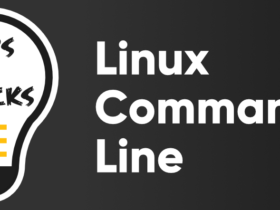



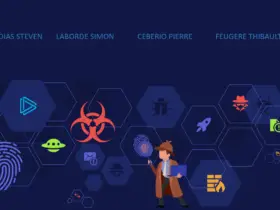




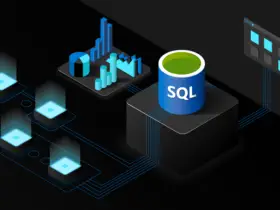


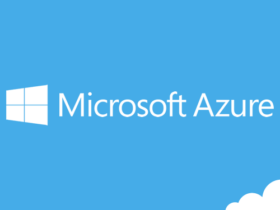
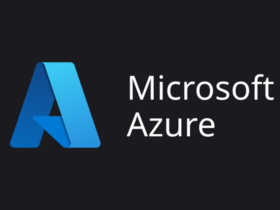
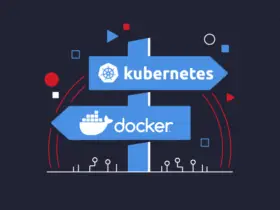

Leave a Reply